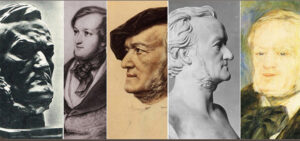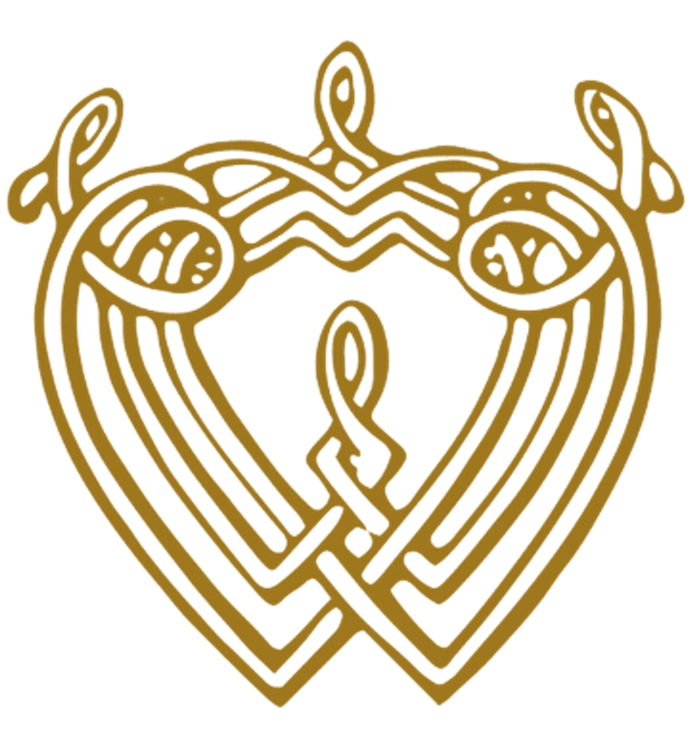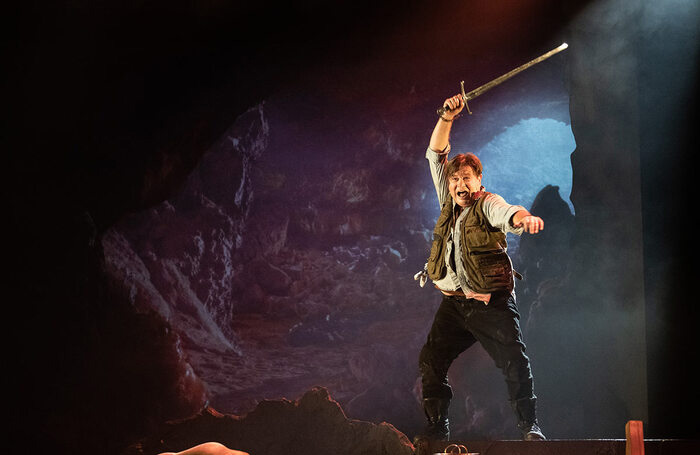About the Society
The Wagner Society in Queensland was formed in 1999 to promote the artistic, scholastic, and public awareness of the musical, dramatic, and theoretical works of Richard Wagner. It is an Incorporated Association governed by the provisions of the Associations Incorporation Act 1981 and Rules authorised by that Act.
It organises talks, screenings, recitals and symposia relevant to the composer’s life and works and their historical, cultural, and philosophical context. It encourages the performance of Wagner’s works by supporting, singers, composers, and instrumental musicians.
The society strives to create a convivial social atmosphere in which to celebrate the composer.
The Wagner Society in Queensland Inc. has public liability insurance with a limit of public liability indemnity for any one occurrence of $10,000,000. Insurer, Allianz Australia Insurance Limited. For renewal 03/03/2026.

MANAGEMENT COMMITTEE 2026
President: Professor Stephen Emmerson
Vice-President: Professor Colin Mackerras AO
Secretary: Professor Alpha Yap
Treasurer: Judy Xavier
Committee Members: Simon Buchanan; John Drew; Annette Fisher; Geoffrey Fisher; Moira Killen; Jennifer Lawrence; Marion Pender; Gidia Timmerman.

OUR VOLUNTEERS
The Wagner Society in Queensland could not function without the generous contributions of its volunteers, and we honour and thank them. New volunteers are always welcomed. As at the AGM of 8th November 2025, our current volunteers are:
Management Committee 2026. As above. Election to the Management Committee is for a single term between one AGM and the next. Committee members are required to retire at an AGM but may nominate for re-election. All members are invited to be proposed and seconded for election to the Management Committee.
Catering Group: Moira Killen (co-ordinator); Robert Feldman; Rochélle Le Bon; Gidia Timmerman.
Observations Group: Colin Mackerras (co-ordinator); Paul Caesar; Stephen Emmerson; Geoffrey Fisher; Michael John.
Photographic Group: Cathie Duffy; Jennifer Lawrence; Matthew Simpson; Judy Xavier.
Setting up Group: Peter and Bette Jansen; Volunteers wanted.
Lecturers, performers and other presenters in 2026: To be advised. Lecturers, performers and other presenters who are also members of the Wagner Society in Queensland receive no remuneration. They contribute considerable time, skills and effort entirely on a voluntary basis.
Priority Bayreuth Tickets for Wagner Society Members
Members of the Wagner Society in Queensland have an opportunity to bypass general public waiting lists and purchase tickets to the 150th anniversary year of the Bayreuth Festival, which is taking place from 24 July to 26 August in 2026. This is made possible because the Wagner Society in Queensland is an independent member of the International Association of Richard Wagner Societies – Richard Wagner Verband International (RWVI).
Bayreuth Festival Details
- Festival dates: 24 July to 26 August 2026
- Festival website: https://www.bayreuther-festspiele.de/en/
- 2026 Festival Brochure: https://issuu.com/bayreutherfestpiele/docs/festival_magazine_2026
If you have any queries regarding the 2026 Festival, please contact committee member Simon Buchanan directly at simonbuc66@gmail.com.
Please note that the deadline for ordering RWVI forms for 2026 was October 12, 2025.
WHO WAS RICHARD WAGNER? by Peter Bassett
Wilhelm Richard Wagner was born on 22 May 1813 in Leipzig in the Kingdom of Saxony during the Napoleonic Wars. He was the ninth child of Karl Friedrich Wagner a Registrar of Police with a passion for the theatre, and Johanna Wagner (née Pätz) who, in her youth, had seemed destined for an acting career. Karl Friedrich died during a typhus epidemic spread by troops returning from Napoleon’s disastrous Russian campaign when the boy was barely six months old. Johanna subsequently married a close family friend, the actor and painter Ludwig Geyer. Richard’s eldest brother was a singer, actor and theatre director, and four of his sisters were named after heroines of Goethe and Schiller. His paternal uncle was a scholar of repute who knew most of the principal literary figures of the day and who had a considerable influence on Richard’s awareness of the classics.
Richard Wagner had a somewhat chaotic childhood, enduring six moves and six schools before the age of seventeen, going without the care and affection of his mother for long periods and having no lasting masculine role model after his stepfather died when the boy was eight years old. No wonder he sought refuge in the world of his imagination and in attention-seeking escapades. He quickly learnt to set his own course and follow his own star.
It was during those teenage years that he became obsessed with music and drama and even wagged school for half a year to pursue his secret passion – to the astonishment of his family who thought he had been going dutifully to the classroom each day! He began to study composition, firstly with the help of a borrowed textbook (on which he ran up a fine so large that he had no hope of paying it), then with a musician in the Leipzig orchestra, and finally with Theodor Weinlig who occupied Bach’s former position of Cantor at St Thomas’s church in Leipzig. The experiences of those formative years explain much about the adult – above all his belief in himself.
He wished only to be an artist who was both a poet and a musician. At the age of nineteen he wrote a (somewhat Schubertian) Symphony and started, and then abandoned, an opera to his own text. At the age of twenty, he completed his first opera Die Feen (The Fairies) after a play by Gozzi. Again, he wrote his own libretto and he finished the music in ten months. In the music we hear echoes of Rossini, Mendelssohn, Weber, Marschner and Beethoven and – now and then – the first indications of an original voice. He then began work on his next opera Das Liebesverbot (The Ban on Love) loosely based on Shakespeare’s Measure for Measure. Soon after marrying his first wife, the actress Wilhelmina Planer, he was involved in a flight in perilous circumstances from Riga. He had been summarily dismissed as music director of the Opera company there by its (German) theatre director and, consequently, was unable to pay his debts. He then endured a bitterly frustrating stay in Paris before writing Rienzi and The Flying Dutchman, both of which had successful first performances in Dresden. It is in The Flying Dutchman that we first hear the authentic voice of Richard Wagner. While working as Kapellmeister to the King of Saxony in Dresden he also composed two beautiful and highly dramatic operas, Tannhäuser and Lohengrin and began thinking about several subjects that would form the basis of his most important works in later years.
The 1830s and ’40s were marked by political instability and revolutions in many parts of Europe, and Wagner became involved in the Dresden uprising of 1849. A warrant was issued for his arrest and he fled into exile in Switzerland. He was effectively exiled from his homeland for the next thirteen years. It was during this time that he composed most of the great cycle of four dramas, The Ring of the Nibelung, as well as another work which would influence the direction of western music, Tristan und Isolde, and his only mature comedy, The Mastersingers of Nuremberg. It was also during this time that he married his second wife, Cosima, daughter of Franz Liszt, and began to sketch out Parsifal, which would not be completed until January 1882. He died in Venice on 13 February 1883.
Wagner’s career was, in many respects, the most astounding in the history of opera. Not only did he revolutionise the art form, but also he had a profound effect on composers of many nationalities. He displayed a mastery of orchestral sound and even invented new instruments. He broke new ground in the art of conducting, was one of the first stage directors as we understand them today, and he oversaw the construction of a revolutionary theatre at Bayreuth for the performance of his works. He influenced writers and painters as well as musicians. In short, as a creative artist, Richard Wagner has few parallels in the history of western culture.
More about us
The Wagner Society in Queensland is an independent incorporated association founded in 1999. It is governed by the Associations Incorporation Act 1981 and the Society’s Rules established under the Act which are enforceable by law. A summary of the key Rules can be obtained by contacting the Secretary Alpha Yap on alphayap60@gmail.com., and Members may also request a copy of the up-to-date complete Rules from the Secretary. The Rules governing membership are set out on the Membership page of this website.
The Society holds monthly meetings on Saturday afternoons (see ‘New Events’ page). These meetings offer a range of activities including talks by guest speakers who may deal with any aspect related to Wagner’s works and their performance; screenings of video-recordings of staged Wagner operas, and live performances by local singers. Following these activities, there is usually an opportunity for socialising and discussion over refreshments.
The society is committed to promoting the works of the composer in the wider community. Examples of its activities in this regard have been support for Wagner productions by opera companies, highly successful symposia, and an annual Encouragement Award to a current tertiary student who, through performance in a major or minor role in a Conservatorium Opera Production, best demonstrates vocal potential for a future career in large scale romantic operas in the style of Richard Wagner or Richard Strauss. The adjudicators for the Encouragement Award are the Heads of the Vocal and Opera Departments of the Conservatorium and all producers of opera programs during the year. Our society has sponsored Queensland singers in professional performances of Wagner’s works.
Richard Wagner’s birthday is traditionally marked via a celebratory event.
The Wagner Society in Queensland is an independent member of the Richard-Wagner-Verband International (RWVI), the International Association of Wagner Societies. The RWVI International Conference is held in different cities in and outside Europe each year. The annual membership fee is based on two euros per member of the society, payable by the end of April each year. Funds are applied to the Richard Wagner Scholarship Foundation to meet the Association’s charitable responsibilities. Members may read about the RWVI on its website: www.richard-wagner-verband.de.
The Society is registered with the Australian Charities and Not-for-profits Commission (ACNC).
Life Memberships have been awarded to honour Theo Baer, Margaret Baker Genovesi (d.2022), Peter Bassett, Graham Bruce, John Casey (d.2025), Kathleen Clifford, Hal Davis (d.2026), Jennette Johnstone and Joseph Ward OBE (d.2019) for their many years of dedicated service to the Society.
Honorary Membership: John Rotar, winner of the 2013 Bicentenary Competition for Composers.
Classes of Membership: The Society’s Rules provide for four classes of memberships: Ordinary Members, Associate Members, Life Members and Honorary Members. All require proposing and seconding by current members of the Society. For further information please see the ‘Membership’ page of this website.
Our Patron

Bradley Daley as Siegfried at Longborough Festival Opera. Photo Matthew Williams-Ellis
The Society’s Patron is Australian Heldentenor Bradley Daley. Bradley studied music at the University of Southern Queensland and the Queensland Conservatorium before continuing his private studies in the United States and Europe. His international career has seen him perform some of opera’s most demanding tenor roles, including Siegfried, Siegmund, Erik and Walther in the Wagnerian repertoire, as well as in works by Mozart, Beethoven, Verdi, Puccini, Richard Strauss and many other (including contemporary) composers.
Website Management and Editing
Website management and technical services – Ashgrove Web Design.
Website content editor – Dr Peter Bassett.
